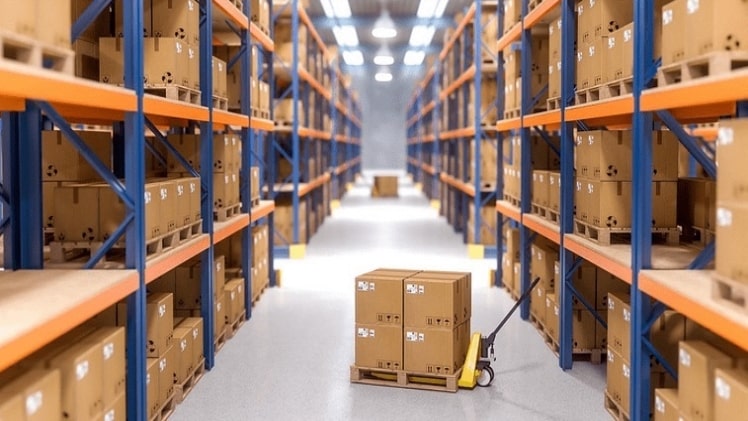Needing a new business warehouse can happen for many reasons. You might be launching your business from scratch and not have any warehouse. You could also be expanding into a second or additional location or just moving into a warehouse that has better space and location. Whatever the reason, you have to fund your new business warehouse before you can hope to use it.
Funding a New Business Warehouse
If your business has enough hard cash reserves, you could possibly just pay for a warehouse and buy it outright. However, financing is usually the better way to go in the long run.
You can submit warehouse financing applications to hard money lenders, credit unions, banks, and private lenders. You’ll have to submit substantial documentation about both yourself and the property. There will also need to be an appraisal in order to get the best possible interest rate.
If you need to close quickly on your warehouse loan, then you need to think about loans with no or low levels of documentation. That will depend on how much equity you already have in the property. Such loans usually have LTVs ranging from 55% up to 65%. They can also usually close in just two weeks.
Warehouse mortgage financing frequently takes a first position lien, although certain lenders will provide second mortgages so borrowers can access capital for landscaping, remodeling, and expansion projects, among others.
Do You Need a Warehouse Loan?
Getting a loan is one way to finance your warehouse for expansion or operations. This is no different than financing a residential home or your private passenger vehicle. In doing so, you can access and operate your warehouse while you’re still paying it off. Depending on how you use it, the warehouse could pay for itself.
A warehouse loan in a state such as Utah lets your business take advantage of a booming local market, even if you don’t have the immediate funds to relocate there. Real estate is red hot in Utah right now as many are flocking to the state for its natural beauty, job opportunities, and a strong economy.
Finding Your New Warehouse
According to EasyShip, choosing the right warehouse has a substantial impact on the speed, efficiency, and effectiveness of your company’s supply chain. There are many factors to consider when trying to find your new warehouse, and these are some of the crucial ones: legal assistance and immigration to the USA
- Location: You want commercial real estate that is reasonably priced, but you also want a location that features short transit times in getting goods to your clients. The cost of transportation in the area also matters greatly.
- Accessibility: Closely related to location is the accessibility of the warehouse. If you are opening one in a port city, then proximity to the actual port might be essential. Vehicles need to be able to get in and out easily and quickly, so proper signage and highway access can matter a lot, too.
- Industry Suitability: Not all warehouses are the same. Many can be flexible, but if your business is involved in food supplies for restaurants and grocery stores, then a warehouse that’s usually been known for construction supplies might not be a good fit.
- Age: Older warehouses might be cheaper and in prime locations. Then again, they might be harder to adapt to current needs and operations, and they might need maintenance more often than not.
- Technology: Warehouses used to just be places of storing lots of goods, but modern technology allows for all kinds of detailed tracking and different operations inside a facility. See what’s already installed or could be easily added.
- Staffing: Make sure the local labor market actually has the people you need to staff the warehouse. You’ll need to make sure there are enough people looking for work, but you also need to sift through to find experienced ones.
Expense or Investment?
A new business warehouse will cost money. You not only need to find the funding to have it in the first place, but there will be utilities, insurance, taxes, and other costs associated with it. Still, if you find the right warehouse for your business, then it should mean the chance to grow your company and result in more revenue and profit in the future.


